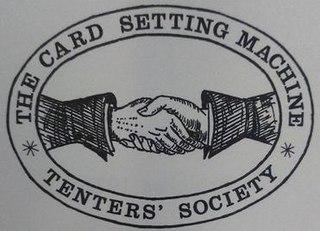Related Research Articles
The Miners' Federation of Great Britain (MFGB) was established after a meeting of local mining trade unions in Newport, Wales in 1888. The federation was formed to represent and co-ordinate the affairs of local and regional miners' unions in England, Scotland and Wales whose associations remained largely autonomous. At its peak, the federation represented nearly one million workers. It was reorganised into the National Union of Mineworkers in 1945.

The South Wales Miners' Federation (SWMF), nicknamed "The Fed", was a trade union for coal miners in South Wales. It survives as the South Wales Area of the National Union of Mineworkers.

The National Union of Scottish Mineworkers (NUSW) is a trade union in Scotland, founded in 1894 as the Scottish Miners Federation. It joined the Miners' Federation of Great Britain, and in 1914 changed its name to National Union of Scottish Mineworkers. It survives as the National Union of Mineworkers.
The National Union of Blastfurnacemen, Ore Miners, Coke Workers and Kindred Trades (NUB) was a trade union in England and Wales which existed between 1888 and 1985. It represented process workers in the British iron and steel industry.
The Lancashire and Cheshire Miners' Federation (LCMF) was a trade union that operated on the Lancashire Coalfield in North West England from 1881 until it became the Lancashire area of the National Union of Mineworkers in 1945.

The Durham Miners' Association (DMA) is a trade union in the United Kingdom.
The Cumberland Miners' Association was a trade union in the United Kingdom.
The North Wales Miners' Association was a trade union representing coal miners in Wales.
The Bristol Miners' Association was a trade union representing coal miners in Bristol and Bedminster in England.
The Mid and East Lothian Miners' Association (MELMA) was a trade union representing coal miners in parts of the Lothian area of Scotland.
The Miners' National Union (MNU) was a trade union which represented miners in Great Britain.
William Thomas Mansfield was a British politician and trade unionist.

The Card Setting Machine Tenters' Society (CSMTS) was a trade union representing workers responsible for setting up textile carding machines in the United Kingdom.
Thomas McKenna was a British trade unionist.
The Operative Society of Masons, Quarrymen and Allied Trades of England and Wales was a trade union representing stonemasons and related workers in the United Kingdom.
Joseph Toyn was a British trade unionist.
The West Yorkshire Miners' Association (WYMA) was an early British trade union representing coal miners in the central part of the West Riding of Yorkshire.
The National Amalgamated Association of Tin Plate Workers of Great Britain was a trade union representing sheet metal workers in the United Kingdom.
Harry Dack (1877–1954) was a British trade unionist and politician.
The Aberdare, Merthyr and Dowlais Miners' Association was a trade union representing coal miners in part of Glamorgan in South Wales.
References
- ↑ J. K. Almond and C. A. Hampstead, Cleveland iron and steel: background and 19th century history, p.252
- ↑ "Engineers of change", The Northern Echo , 9 June 2014
- 1 2 3 Arthur Marsh and Victoria Ryan, Historical Directory of British Trade Unions, vol.II, p.236
- ↑ Joyce Bellamy, "Toyn, Joseph", Dictionary of Labour Biography, vol.II, pp.368-370
- ↑ Peter Carter and John B. Smethurst, Historical Directory of Trade Unions, vol.6, p.536